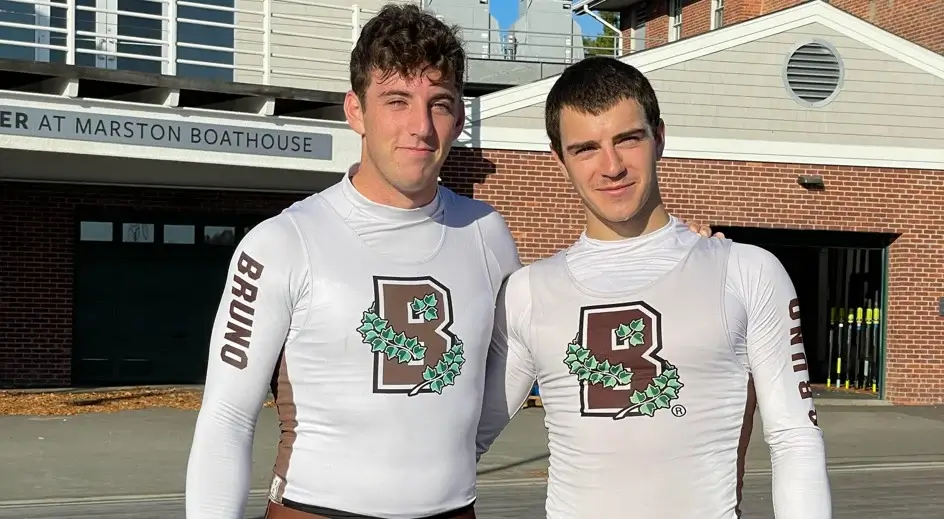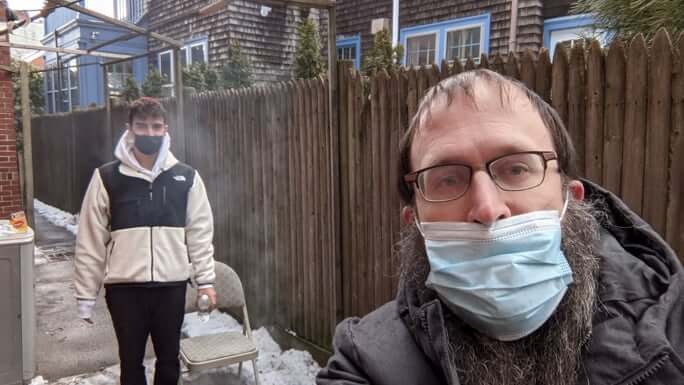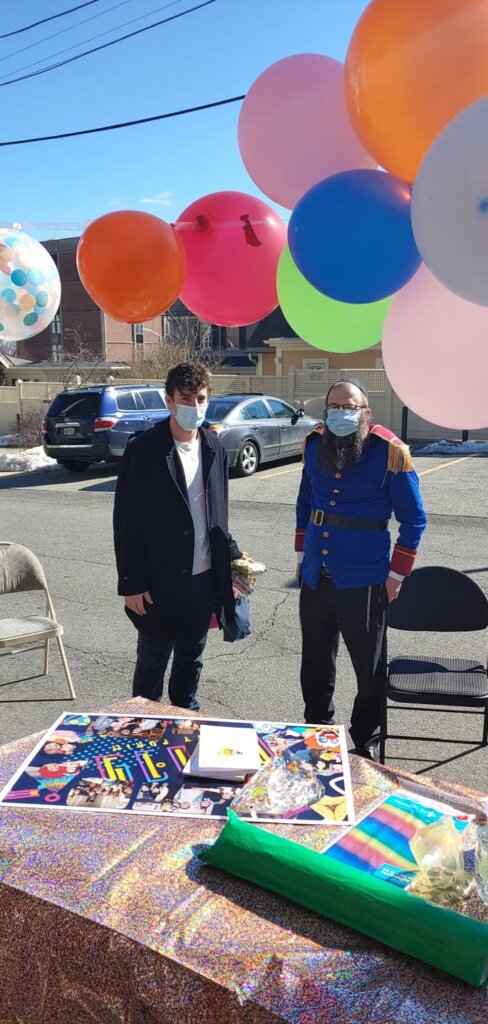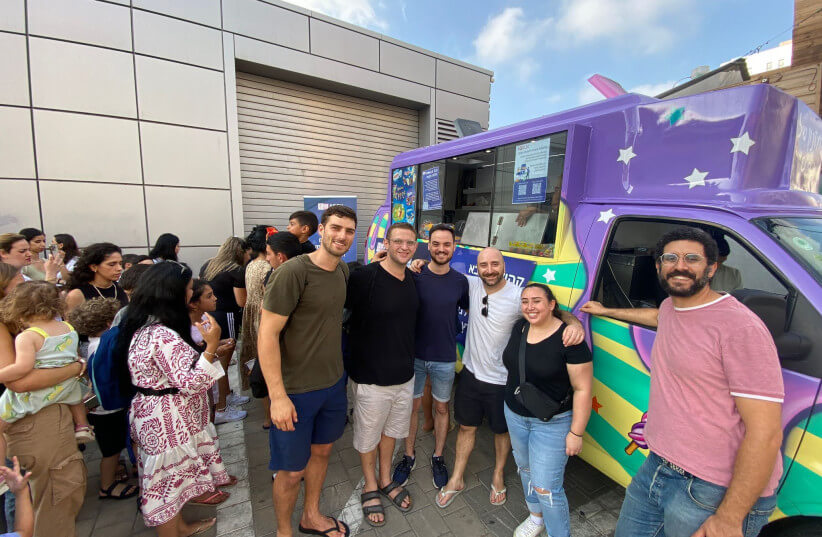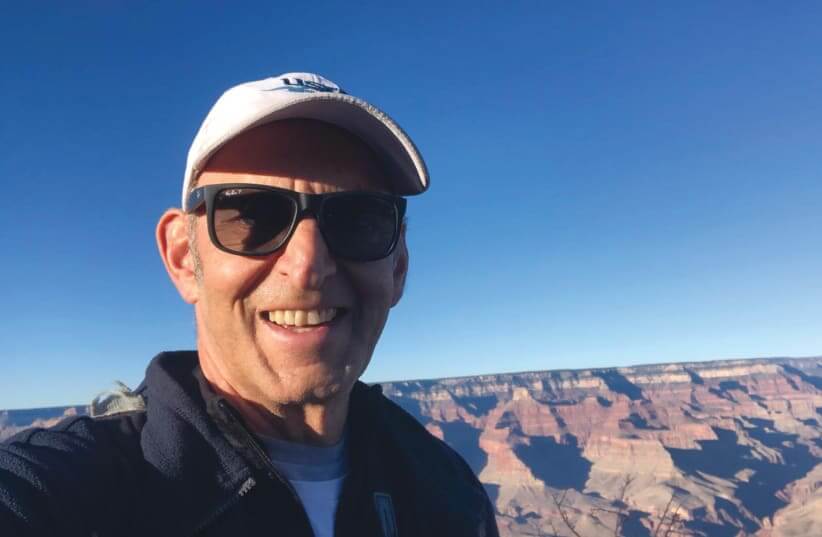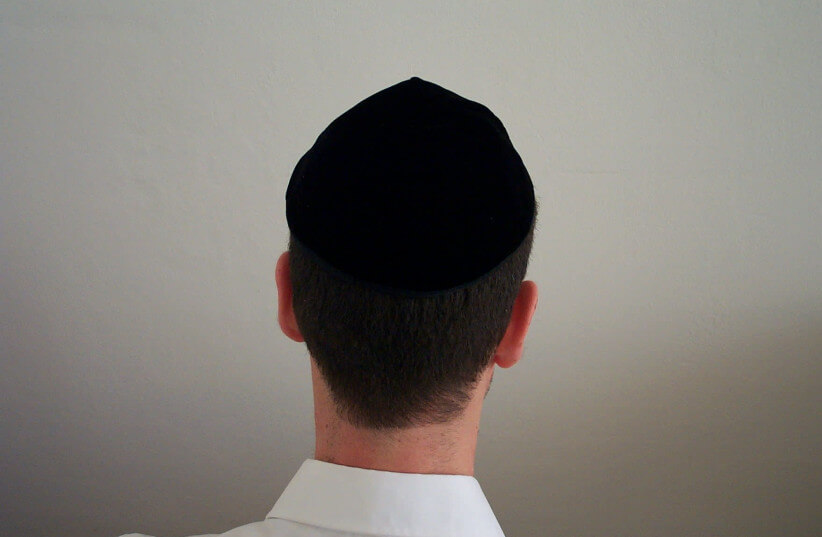The original article is published at JPost.com
Blue-and-white baseball and softball players wear their support on their hands.
When Cincinnati Reds assistant pitching coach and former Team Israel Olympian Alon Leichman unveils his special Independence Day baseball glove next week, he will have a special group of unlikely supporters to thank.
Leichman, 34, the only native-born Israeli coaching in Major League Baseball, spent time in Israel from October 18, 2023 to February 1, 2024, where he picked oranges and avocados with Team Israel teammates, and received a great deal of support from the Reds and former teams and players, and contemplated ways he could continue to be supportive to his homeland.
When Leichman returned to the United States for Reds Spring Training, a picture on social media of a unique baseball glove caught his attention – and it would send him down the road to producing two unique mitts of his own which would contain powerful messages in support of Israel.
Leichman initially saw a photo of a two-toned blue softball glove, shared by Team Israel softball player Maddy Lewis. Her glove contained the word “Hazakim B’yachad” (“stronger together”). Her own glove story would inspire Leichman.
Lewis, 26, had a distinguished college softball career at the University of California San Diego, where she also worked in the athletics communication department. Lewis was longing to stay connected to softball after graduation. She tried out and made Israel’s national team and became an Israeli citizen in July 2023. Lewis is currently the social media and community manager for Blast Motion, a company that created a device that attaches to the knob of a baseball bat to monitor bat speed and rotation. To stay in shape for softball, she often trains on her own.

BASEBALL GLOVE designer Jake Hale (right) has been working with Cincinnati Reds assistant pitching coach Alon Leichman (left) and other Israeli athletes to create unique Israel-themed mitts (inset) in the aftermath of October 7 and the ensuing war. (credit: Jake Hale/Courtesy)
“I was running bases, hitting off a tee, and throwing against a wall at a park in San Diego when a friendly guy came up to me,” she told The Jerusalem Post.
The friendly man was Jake Hale, a self-described “old country boy from Ohio” who played minor league baseball for ten years without seeing a single day in the majors. Hale started a company called JH Performance, which includes a division that sells baseball equipment and accessories.
“I saw a girl there all the time working out,” noted Hale. “I spoke to her, and she told me she plays for Team Israel.”
Showing support through sports
Hale was trying to get into the softball glove market and offered to create a customized glove for Lewis, who immediately knew the color scheme she wanted but asked a friend to help her find a slogan to put on the glove to help remind her of the purpose and values after all that happened on October 7.
Lewis appreciated how careful Hale was in getting the Hebrew just right.
“Hebrew is right to left, which is confusing. He wanted it to be perfect!”
Fellow Team Israel softball player, Ruby Salzman, who played at West Texas A&M University, reports, was also inspired by Lewis.
“I asked, ‘what is one thing that means a lot?” recounted the self-reported “committed Jew.”
“It was cool having a glove with the Israel flag on it.”
She added the flag and the Star of David to the Hebrew word “Linshom,” (“breathe”) to her specially designed glove.
Hale is pleased with the way news of his gloves – and their messages – are spreading.
“I got Maddy her glove, she made a post, and Alon saw it.”
“When I saw it, I thought ‘maybe I should get a glove too’” said Leichman, who decided to design his own red and black glove which he notes are “the colors of Bring Them Home.”
Leichman also regularly sports a “Bring Them Home” shirt on the field while practicing with his Cincinnati teammates.
Leichman proudly noted that he has “two more gloves coming – a blue-and-white for Remembrance Day and Independence Day and a catcher’s glove.”
Hale proudly delivered the blue and white glove to Leichman when the Reds were in San Diego recently to play against the Padres.
As excited as he is about the initiative, Leichman added with concern and optimism: “I am hoping things get better back home and [wearing special gloves] won’t be a thing anymore.”

